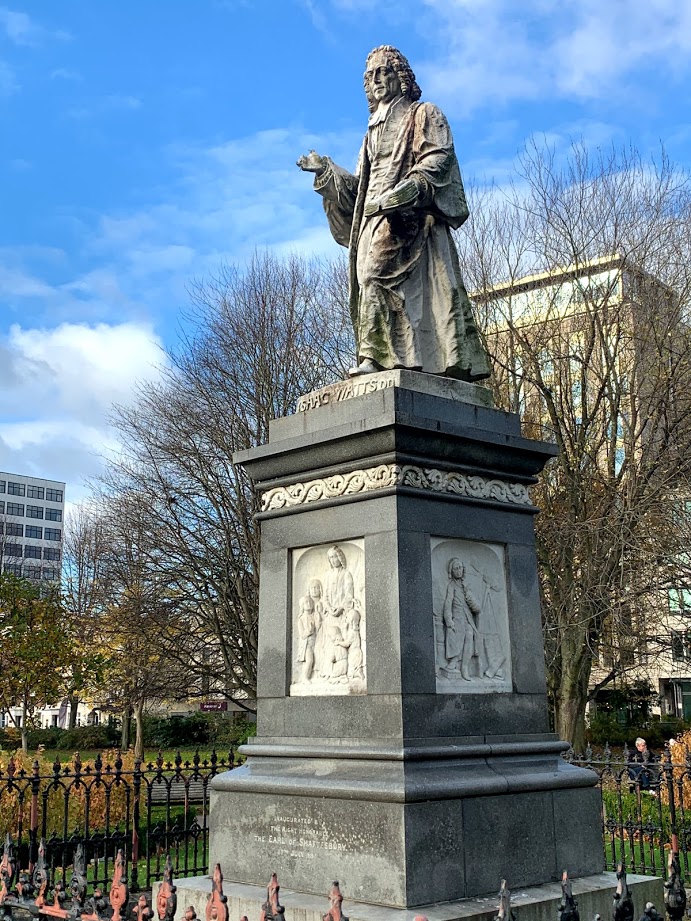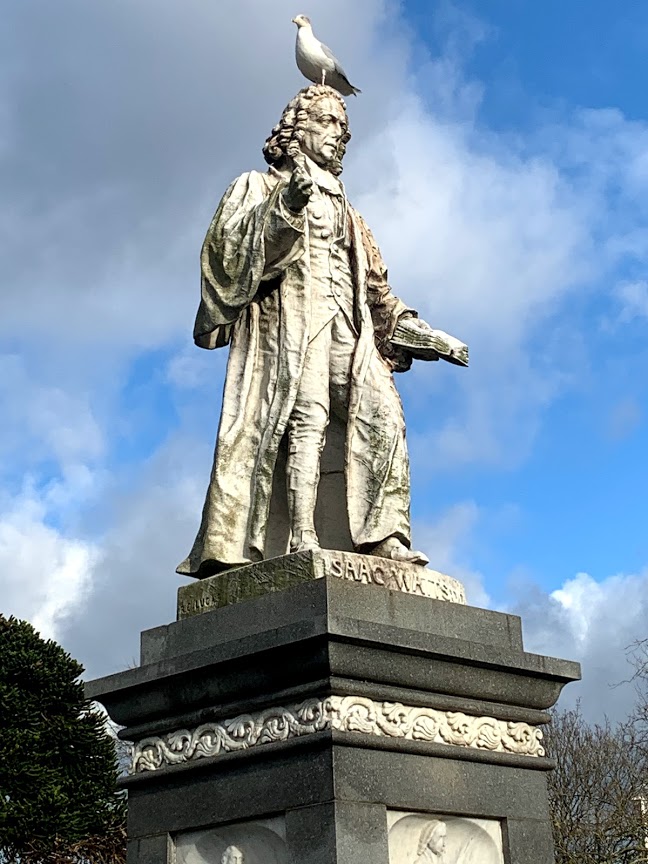Isaac Watts – Southampton’s greatest hymn writer?
I’ve been reading up on one of our greatest hymn writers, Southampton man Isaac Watts. He is best known for classic hymns like Jesus Shall Reign, O God Our Help in Ages Past, Joy to the World, and perhaps best of all When I Survey the Wondrous Cross, described by Matthew Arnold as the greatest hymn in the English language.

He was something of a child prodigy: born July 17th, 1674 in Southampton, England, he was the eldest of the nine children of a Congregational church deacon. His father, also Isaac, was imprisoned twice for his nonconformist beliefs. Young Isaac had an unusual aptitude for languages, learning Latin at the age of five, Greek at nine, French at eleven, and Hebrew at thirteen. Wondering what kind of education he had been given, I was quickly reminded that he attended the same school as my own boys, King Edward VI School, Southampton. Their language teaching, however, has only yielded a bit of French or Spanish!
Singing in church in those days was mostly confined to a recitation of psalms, often read first from the front and then repeated in a kind of ponderous drone by the congregation. Watts once wrote: “The singing of God’s praise is the part of worship most closely related to heaven, but its performance among us is the worst on earth.”
One Sunday the young man was complaining about the quality of the singing, when his father said “Why don’t you give us something better, then?” By the time of the evening service, Isaac had produced his first hymn, which was well-received, and for a period of two years, he wrote a new hymn every week. Many of his hymns were versions of the psalms with more modern tunes, but he was also a pioneer of what were known as “hymns of human composure”, in which more personal feelings were expressed. When I Survey the Wondrous Cross is an example.
Watts was a man of principle. He was offered the easy route of having his university education paid for by a wealthy benefactor, so long as he then became a minister in the established church (the Church of England). He refused to do this, preparing instead for ministry in the independent church by attending one of the Dissenting Academies. After completing his education he served as Assistant Pastor and then as Pastor of Mark Lane Independent (Congregational) Chapel in Stoke Newington, London. A plaque marking Abney House, where he lived for many years with the Abney family, can be seen in Stoke Newington Church Street.
As well as 750 hymns (according to Wikipedia), Watts also wrote essays, sermons, and catechisms, and books and treatises on theology, psychology and logic. He also wrote, in 1715, Divine Songs Attempted in Easy Language for the use of Children, arguably the first hymnal written exclusively for children. This was extremely popular in the nineteenth century, and was both quoted by Dickens and parodied by Lewis Carroll.
Jesus Shall Reign is also worthy of note, as one of the earliest hymns with a missionary emphasis. In 1719 when this was written the modern evangelical missionary movement had scarcely begun. It was not until 60 years later that William Carey famously began to stir up the Church of England to consider the heathen.
Isaac Watts struggled with ill health for much of his life, and died in 1748. He was honoured with a monument in Westminster Abbey, a statue in Stoke Newington in London, and another in Watts Park in his birth city of Southampton. Southampton also has the Isaac Watts Memorial Church (URC). Dr Samuel Johnson said of Watts: “Few men have left behind such purity of character or such monuments of laborious piety.”
(sources include the excellent and highly recommended Kenneth W. Osbeck books 101 Hymn Stories and 101 More Hymn Stories, as well as Wikipedia, Encyclopedia Britannica, waymarking.com and Google Books)
